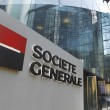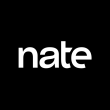2PSD Draft Expands Regs, Raises Questions (July 30, 2013)
July 29, 2013
The long-awaited draft of the Second Payment Services Directive (2PSD) was released by the European Commission last week. The draft regulation is larger than the current regulation and includes several updates that could bring more businesses under its purview. The current PSD has 63 Recitals and 96 Articles, while 2PSD has an 11-page explanatory memorandum, followed by 76 Recitals and 109 Articles. Among other things, the proposed regulation seeks to change the definition of limited networks, which could mean that some exemptions no longer apply, according to Robert Courtneidge, Prepaid International Forum chairman and global head of cards and payments for international law firm Locke Lord LLP. Courtneidge estimates that in the U.K. alone, there are thousands of limited networks under the current definition, such as mall gift cards, that could lose their exemption and need to be approved by Financial Conduct Authority (FCA) under the proposed rules. “I don’t know if this will make it in the final rules because it puts an undue burden on regulators with little benefit,” Courtneidge says.T
The sheer size of 2PSD will make it unlikely to be finalized and approved before the end of the year, he continues. “If 2PSD does get pushed back until fall 2014, it could mean that the industry will see a merged 2PSD/3EMD produced and agreed to by 2015, with an implementation date of 2017,” Courtneidge explains. Now that the draft has been released, regulators in the member states will be meeting with industry stakeholders to discuss the proposed rules. The FCA held its first meeting yesterday. Courtneidge attended the meeting and says the concern over limited networks came up, but the main topic of discussion was overlay service providers—which enable customers to make direct payments from their bank accounts online—and the ambiguity in drafting. “The main concern is that while [overlay services] open up the market for legitimate providers,” he explains, “it also will pose major security risk if you get fraudulent ones coming through.”











































